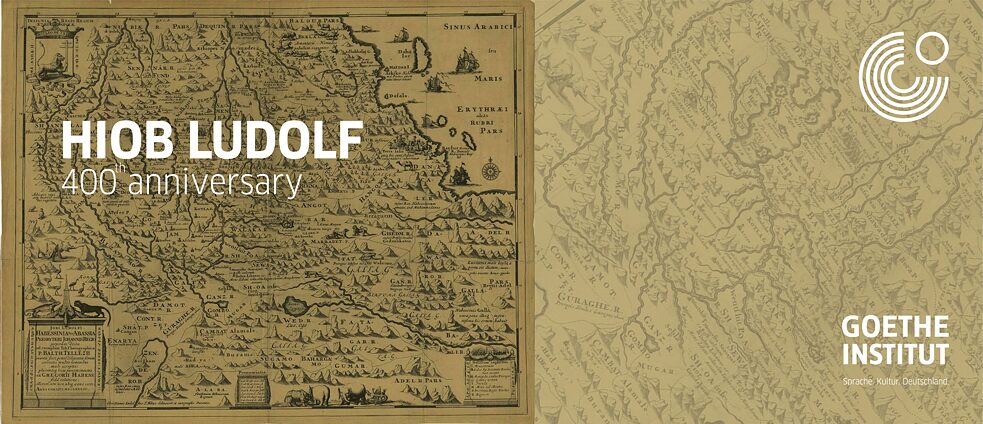400th anniversary of Hiob Ludolf
Those who have an interest in the scientific discipline of Ethiopian studies, encompassing its history, inquiries, and discoveries, cannot disregard the contributions of Hiob Ludolf, the Erfurt polymath of the Baroque period, whose 400th birth anniversary will be in 2024.
Hiob Ludolf's publications, including a dictionary of the classical ancient Ethiopian language, the Lexicon Aethiopico-Latinum, the first dictionary of Amharic, the Lexicon Amharico-Latinum, and the Historia Aethiopica, are of inestimable value for the historical, cultural, linguistic, and religious exploration of Ethiopia.
Ludolf's research and publications would not have been possible without the help of the Ethiopian priest and scholar,Abba Gorgoryos, who came to Gotha at the invitation of Duke Ernst of Saxe-Gotha. Ludolf and Ernst not only studied all the available books and reports about Abyssinia (as Ethiopia was then called in Europe), which they found in the collections of the famous Gotha library, but also prepared an extensive list of questions that they presented to Abba Gorgoryos. In several months, Ludolf and Gorgoryos jointly prepared the old Ethiopian Dictionary, held extensive discussions, made detailed descriptions of the religious and cultural conditions in Ethiopia, and thus laid an essential foundation for research on Ethiopia.
Hiob Ludolf played a significant role in the development of Ethiopian studies by incorporating the knowledge, insights, ideas, and opinions of the Ethiopian scholar Abba Gorgoryos into his writings and making them accessible in Europe. Because of his contributions, scholars in this field often refer to Ludolf as the "founder of Ethiopian studies," the "founder of Ethiopian studies in Europe," or the "founder of modern Ethiopian studies." While the first designation was widely used from the mid-19th century to the mid-20th century, the term has since been relativized to emphasize Ludolf's role as the founder of Ethiopian studies in Europe during the "modern era." This is because knowledge about Ethiopia's people, history, and languages had already been collected, systematized and studied since ancient times in Ethiopia itself.
The fruitful encounter between Hiob Ludolf and Abba Gorgoryos and their unquestionably great significance for academic discourse on Europe and Ethiopia have prompted the Goethe-Institut to initiate and support research to shed light on this exchange from an Ethiopian perspective, as there are still many unanswered questions. For example, how and when did Hiob Ludolf's works become known in Ethiopia, and how were the depictions of the country, its history, and its languages contained therein perceived? How should his opinions and insights be evaluated from an Ethiopian perspective? Do his works contain knowledge about Ethiopia that is not only still relevant today but would be lost without his descriptions? So, what is its reception history in Ethiopia? What treasures could still be unearthed?
In 2024, Germany will commemorate the 400th birthday of its great scholar and honor his multifaceted life and work. It is a fitting occasion to take a closer look at his contribution to Ethiopian studies, for which international research is already underway. To this end, the Goethe-Institut is supporting two Ethiopian scholars, the historian Prof. Shiferaw Bekele and the philologist Abba Daniel Assefa, to study Hiob Ludolf and his significance for Ethiopia as well as the contributions of Abba Gorgoryos. The research results will be presented in Germany and Ethiop as part of the celebrations.
Abba Gorgoryos (1595 - 1658)
Hiob Ludolf (1624 - 1704)
Research area
Abba Daniel Assefa
Prof. Shiferaw Bekele
Prof. Sebsebe Demissew
Short Bio of the researchers
A glimpse into the symposium
Introduction to exhibition
Media coverage
Project Closure
